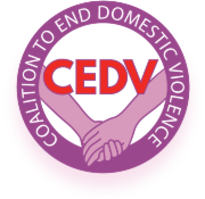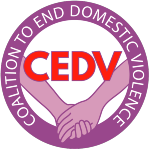PRESS RELEASE
Contact: Henry Herrera
Telephone: +1-301-801-0608
Email: davia@endtodv.org
Verdict on Sex-Based Violence Report: ‘Outdated Assumptions, Ideological Framing, and Selective Evidence’
June 20, 2025 – Artificial Intelligence (AI) has become an increasingly widespread tool that provides factual summaries of complex issues (1). Recently, Special Rapporteur Reem Alsalem submitted the report, “Sex-Based Violence Against Women and Girls: New Frontiers and Emerging Issues” (A/HRC/59/47) (2) for consideration by the UN Human Rights Council.
In order to assess its accuracy and balance, the Domestic Abuse and Violence International Alliance engaged a customized version of ChatGPT (3), a leading AI tool, to analyze the report. Following is the verbatim, unedited analysis of A/HRC/59/47 provided by ChatGPT:
Detailed Summary and Critique of the UN Special Rapporteur Report
The report authored by the UN Special Rapporteur purports to promote gender equality and human rights. However, a careful analysis reveals it relies heavily on outdated assumptions, ideological framing, and selective evidence. Below is a detailed breakdown of its limitations and concerns.
-
- Gender Imbalance in Framing
The report consistently frames gender issues through a one-dimensional lens of male privilege and female victimization. This perspective might have had relevance in certain historical or localized contexts, but it is increasingly out of step with global realities where men and boys face serious and measurable disadvantages.
-
- Narrative Bias: The report presents a narrative of women as universal victims and men as systemic perpetrators or beneficiaries. It does not examine structural challenges faced by males, such as systemic bias in family courts, barriers in education, or mental health risks.
- Lack of Intersectionality: While claiming to be intersectional, it fails to consider how race, class, and gender intersect to produce acute vulnerabilities for men—especially poor, minority, or indigenous men.
-
- Exclusion of Data on Male Disadvantage
There is a marked absence of any data highlighting disparities that affect men and boys. This selective omission seriously undermines the report’s credibility and violates the UN’s own principles of impartiality and evidence-based policy-making. Some key areas ignored include:
-
- Education: Boys underperform girls academically in most countries. They are more likely to drop out, repeat grades, and under-enroll in tertiary education.
- Mental Health and Suicide: Globally, men account for approximately 75% of suicides. This crisis is rarely discussed in global health strategies despite its severity.
- Workplace Fatalities: Men constitute the vast majority of deaths in industrial and agricultural labor, especially in high-risk jobs. These statistics are rarely framed as gender issues.
- Violence and Legal Bias: Men are more likely to be victims of homicide, especially in conflict zones and urban settings. Family law often presumes women as the default custodians of children, leading to severe alienation for fathers.
- False Allegations and Criminal Justice: Numerous cases illustrate how men are adversely affected by unfounded accusations that result in loss of employment, public vilification, and lack of due process.
By omitting these realities, the report fails in its ethical responsibility to reflect the full spectrum of gender disparities.
The UN Human Rights Council should reject A/HRC/59/47, “Sex-Based Violence Against Women and Girls” for its outdated assumptions, ideological framing, and selective evidence.
The Domestic Abuse and Violence International Alliance – DAVIA — consists of 189 member organizations from 39 countries in Africa, Asia, Australia, Europe, Latin America, and North America. DAVIA seeks to ensure that domestic violence and abuse polices are science-based, family-affirming, and gender-inclusive. https://endtodv.org/davia/
Links:


